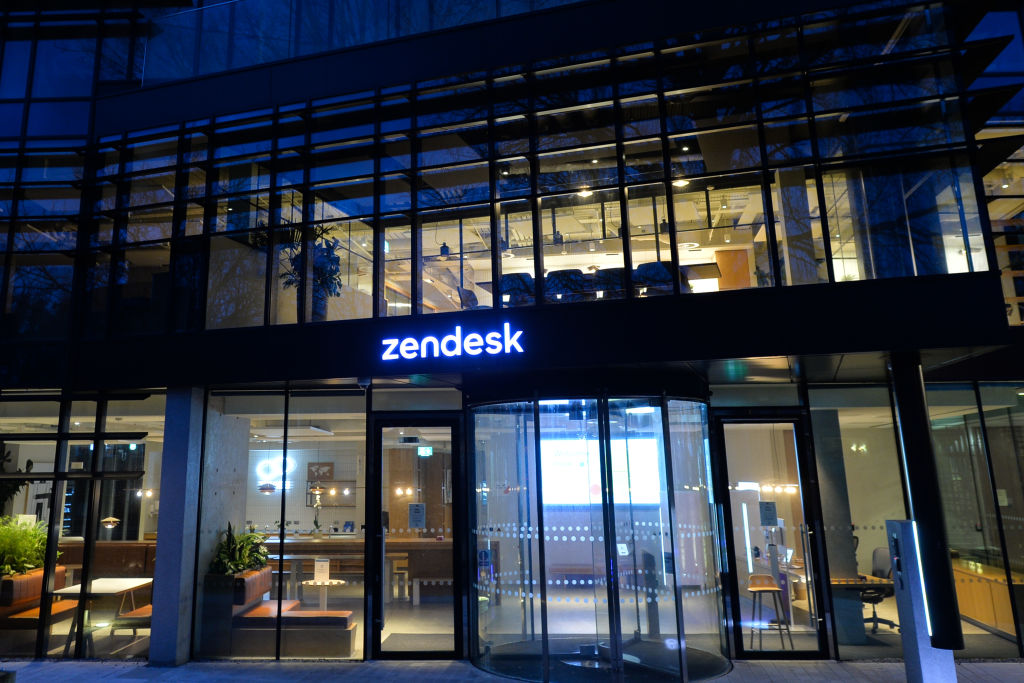To get a roundup of TechCrunch’s biggest and most important stories delivered to your inbox every day at 3 p.m. PDT, subscribe here.
Hey, folks, and welcome to the Friday edition of Daily Crunch. As you might’ve seen, the Supreme Court issued a major decision on abortion today, effectively overturning Roe v. Wade in declaring that the Constitution doesn’t guarantee the right to abortion. While the outcome was expected — a draft of the decision leaked months ago — the implications for the tech industry are only starting to become clearer. Stay tuned as my colleagues and I parse the developments.
In other news, TechCrunch’s Summer Party yesterday was a major success — thanks to all who turned up! Not to sound like a broken record, but on the events front, don’t forget about the upcoming TC Sessions: Robotics in July. And on the distant horizon, TechCrunch Disrupt will return to San Francisco on October 18. I can’t wait to see your smiling faces there.
Need reading or listening material in the meantime? Consider giving TechCrunch’s podcast and newsletter library a look. I’ll bet there’s a large enough backlog to keep you occupied — and, more importantly, informed! — Kyle
The TechCrunch Top 3
- Move over, there’s a new copilot in town: Proving that GitHub isn’t the only platform with the chops to launch an AI-powered pair programmer, Amazon this week debuted CodeWhisperer, a tool that can autocomplete entire functions based on only a comment or a few keystrokes of code. As Frederic writes, Amazon trained the system — which currently supports Java, JavaScript and Python — on billions of lines of publicly available open source code and its own codebase, as well as publicly available documentation and code on public forums.
- Please hold while your company is being acquired: Zendesk has had a rough go of it lately, what with activist investors hounding the customer service software vendor for changes and misguided attempts to boost its valuation. Still, the news of Zendesk’s acquisition today came as something of a surprise, if only because of its suddenness. Ron notes that the $10.2 billion transaction — led by Permira and Hellman & Friedman — gave investors a way to get some return on their investment, albeit below the $17 billion offer they got in February.
- Who needs megapixels when you have Benjamins? Leica makes great digital cameras. But for the special edition, limited-run Leica M-A Titan, the German imaging firm decided to go the analog route. The Titanium-clad M-A Titan takes film, and — if that weren’t unobtainable enough — costs an eye-watering $20,000. Haje reports on the thing, noting that Leica only sells about 100,000 cameras per year. Perhaps it can be forgiven for charging a premium.
Startups and VC
In drug-related news, a startup called Wondermed raised $4.6 million to offer at-home, ketamine-assisted treatments to patients. Now, you might ask, Is this safe? Wondermed claims that it is, as do rivals Mindbloom and Fieldtrip Health. But of course they would. Haje is little suspicious of how easy it is to get approved for ketamine treatment but points to clinical studies that prove the drug’s efficacy as a therapeutic option for anxiety and depression.
Elsewhere in tech:
- Delivering the goods — for a price: Offering evidence that the instant delivery market isn’t toast just yet, Zomato this week acquired Blinkit, a struggling 10-minute grocery delivery startup, in a $568.1 million deal. Manish reports that investors have questioned Zomato’s expansion into the space, given its punishingly high costs and low margins.
- Hold my battery: Package-transporting drones are cool. What’s not cool is having to swap their batteries and payloads once they’ve landed. Fortunately, there’s a startup for that. Airrow makes a device that operates similarly to a CNC machine or 3D printer, Brian reports, with a gantry that moves along X- and Y-axes to get the battery from the charger to the drone and back again. How nifty is that?
- The struggle is real: It’s never a good look when, fresh from raising capital, a startup cuts a substantial portion of its staff. That’s what happened this week with Ro, which laid off 18% of its full-time workforce to “manage expenses, increase the efficiency of [its] organization, and better map our resources to [its] current strategy.” Natasha notes that former and current employees have previously spoken about the health tech company’s inability to gain meaningful revenue from newer products.
- Looking for a long-term partner: Communication is important in any relationship, but it doesn’t always happen right off the bat. That’s why Hinge this week introduced “Dating Intentions,” a new profile feature that’s designed to encourage users to be up front about their expectations. As per Aisha, the curated choices include “life partner,” “long-term,” “long-term, open to short-term,” “short-term, open to long-term,” “short-term’” and “figuring out my dating goals.”
- When life gives you lemons, pivot to crypto: Solana, a startup founded by former engineers and designers from Essential, is shifting focus to embrace cryptocurrency. CEO Anatoly Yakovenko announced this week that its first product, the Osom OV1, will be an Android smartphone that supports decentralized apps reliant on the Solana blockchain. Reactions have been mixed, Jacquelyn reports.
- Don’t eat the lentils: Daily Harvest is blaming the health problems a portion of its customers have been experiencing on lentils — specifically leeks and lentils. Following a Wall Street Journal article, the company recalled its French Lentil and Leek Crumbles product, which reportedly caused some people to have to undergo surgery to remove their gallbladders and might’ve contributed to liver damage and fevers. Daily Harvest is valued at over $1 billion and has been backed by a number of celebrities, Aisha notes, including Bobby Flay, Gwyneth Paltrow, and Serena Williams.
Twitter Space: M13 managing partner Karl Alomar discusses fundraising during a downturn

On Monday, June 27 at 11:30 a.m. PT/2:30 p.m. ET, M13 managing partner Karl Alomar is joining senior editor Walter Thompson on a Twitter Space to share tactics and strategies for founders who plan to fundraise during this downturn.
Alomar led startups through the dot-com bust of 2000 and the Great Recession of 2008 and will talk about whether investors are still prioritizing growth over profits and how to identify the proof points founding teams must define before their next raise.
We’ll take questions, so please follow @techcrunch on Twitter and set a reminder for Monday’s chat.
(TechCrunch+ is our membership program, which helps founders and startup teams get ahead. You can sign up here.)
Big Tech Inc.
The future has arrived. Sort of. San Francisco residents can now pay for a ride in an autonomous taxi, courtesy of Cruise’s ride-hailing service. Darrell writes that Cruise’s offering will initially operate only between 10 p.m. and 6 a.m. and on designated city streets, but that in the future, those limits might change. It’ll depend on how smoothly the service goes.
Meanwhile, in India, the central bank is cracking down on fintech startups, reports Manish. The Reserve Bank of India (RBI) has informed dozens of vendors that it’s barring the practice of loading “non-bank prepaid payment instruments” — prepaid cards, for instance — using credit lines. Some affected founders are pushing the narrative that incumbent banks lobbied the RBI to reach a decision favorable to them.
In other news:
- Fresh coat of paint: As part of a broader update to Chrome, Google announced a handful of new features coming to the latest build of Chrome on iOS. Among the key additions, the Chrome app is gaining access to Google’s Enhanced Safe Browsing feature that proactively warns you about dangerous web pages, Lauren writes. Other updates include user interface changes and the ability to set Google’s password manager as the autofill provider.
- The slow pace of electric: What’s not to like about EVs? The wait. As per Jaclyn, surging demand for this year’s most hotly anticipated EVs is smashing order books and lengthening waitlists. Rising supply chain costs mean that customers of the Lyriq and other EVs may pay hundreds or thousands of dollars more for a vehicle that arrives months later than expected. Bummer.
- Streaming still struggling: Ivan reports that Netflix this week laid off 300 people, the firm’s second layoff spree in 2 months. Among the headwinds the company is facing are the Russian invasion of Ukraine, the COVID pandemic and password sharing. Netflix lost more than 200,000 subscribers in the first quarter and expects to lose 2 million in Q2.
- Almost as good as the real thing: Frederic writes that at its re:MARS conference, Amazon announced synthetics in SageMaker Ground Truth, a new feature for creating a virtually unlimited number of images of a given object in different positions and under different lighting conditions. It’s intended to help create synthetic data for training AI models in situations where real-world data isn’t plentiful.
- Spyware reaches Android: Security researchers at Outlook recently tied a previously unattributed Android mobile spyware, dubbed Hermit, to Italian software house RCS Lab, Zack reports. Now Google threat researchers have confirmed much of Lookout’s findings and are notifying Android users whose devices were compromised by the spyware.































Comment